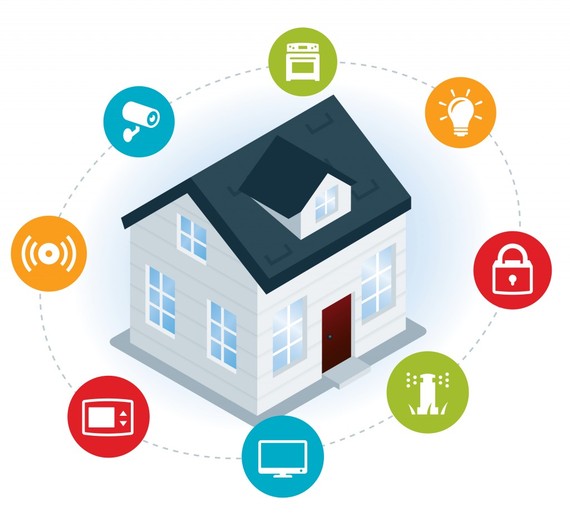Smart, connected technologies are developing at an exponential rate. These innovations – including cloud computing and platform technologies, big data and analytics, mobile solutions, Internet of Things (IoT) technology, speech and artificial intelligence (AI) – are accelerating the digital transformation in the home and influencing the creation of new products and services.
By 2020 there will be 30 billion connected devices and a smart home will generate 50 GB of data every day, according to Microsoft. What trends will influence the smart home’s acceptance, growth and sustainability? Whole platforms and ecosystems have yet to resonate with consumers causing frustration to grow around this fragmented technology not yet meeting its value proposition. Singular solutions are further complicating the journey to the smart home.
Three Trends for the Ultimate Smart Home
1. Simplification.
For many consumer tech creators, there’s a simple philosophy behind improving the consumer experience: less buttons. While the industry is further along in making new user interface (UI) technologies ubiquitous, the need to reduce complex interoperability is still an obstacle. To simplify UI, artificial intelligence (AI) and voice assistants are essential. While they are not yet commonplace, about 220 million voice-controlled smart home devices are forecast by 2021. Voice assistants allow for a more engaged consumer but challenges remain. For instance, a voice assistant doesn’t work with smart home devices out-of-the-box, but must be set up and linked to new products and apps. As a result, the initial setup remains cumbersome. However, the end-result removes the habitual need to use a smartphone to control the home. Each person can dim lights, view a live stream, play music or turn on an appliance – without needing to find the one smartphone in the house that has the passcode and apps. Tablet-styled touch panels, or inhome displays (IHD), feature another essential user interface. While IHDs allow anyone in the home, friends or family, to interact with the smart home – they need to become more userfriendly and affordable. The combination of voice and display will enable a more immersive experience, where everyone in a home can engage with the ecosystem. Prolonged voice and touch engagement will enable devices to collect data, learn routines/behaviors, detect patterns and ultimately create an autonomous experience that anticipates your needs.
2. Comfort and security.
Increased convenience and improved quality of life is driving sales of smart home products. It’s about activating the thermostat and pre-heating the oven on your drive home in the evening, or having a smart refrigerator that orders the food items you need restocked. Similarly, peace of mind is another fundamental reason why consumers buy smart home devices. For example, security cameras enable you to see what’s happening when you’re not home or monitor your baby from afar. And smart doorbells can see who’s at the door if you’re away.
3. Energy management.
Smart homes require intelligent energy management. Beyond controlling the heat inside the house to ensure it’s optimal, and that electric vehicle charging points are operational, expect to see services like weather forecasting combining with other utility services rather than remaining a separate app. New services will emerge, due to the increasing availability of smart meters and solar panels. Homes will generate their own energy supply and also be able to sell the excess back to the national grid. These developments will bring the smart home closer to expectations.

